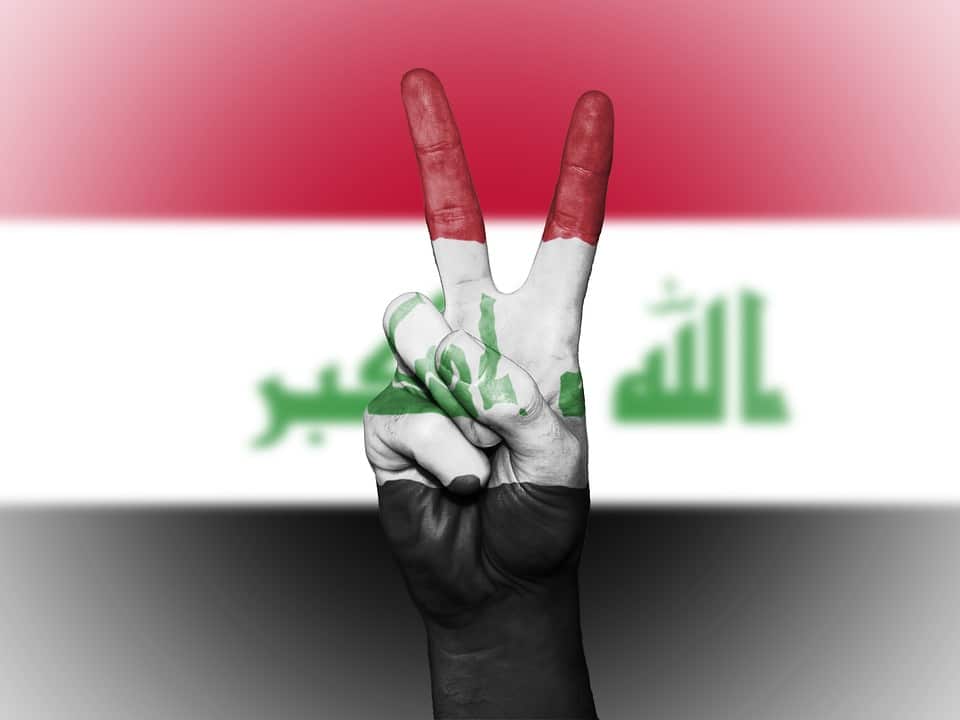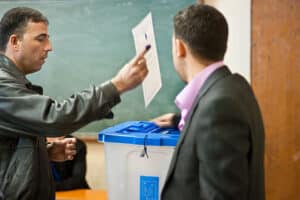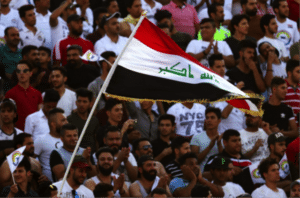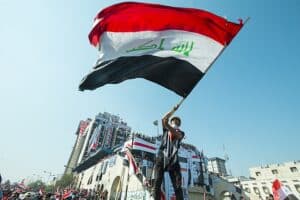On May 12th 2018 Iraq went to the polls to vote for the 329 members of parliament. It was the first vote since the defeat of ISIL and the Kurdish independence referendum in 2017. Originally the elections were scheduled to take place in September 2017, but were postponed in the aftermath of the Iraqi Civil War. Voters could choose from a record number of 85 parties who organized themselves into larger alliances. The Alliance of Revolutionaries for Reform of the Shia cleric Sadr secured surprisingly the most seats amid record number low voter turnout of 44%. Incumbent Prime Minister Haidar al-Abadi and his al-Nasr alliance trailed Sadr with several percent. With no coalition winning a majority, it will probably take several month to form a government
Surprising outcome
The vote was widely seen as referendum on incumbent Prime Minister Haidar al-Abadi and his Nasr Coalition handling of the Iraqi Civil War. Most analysts argued that al-Abadi had a good chance of winning the elections and securing a second term as prime minister, the Alliance of Revolutionaries for Reform of the Shia cleric Sadr won most seats during the election. Sadr had won the nationwide popular vote with more than 1.3 million votes and gained 54 seats. He was followed by Amiri’s Conquest Alliance with more than 1.2 million votes, translating into 47 seats, and Abadi with more than 1million votes and 42 seats.
For the Kurdish parties is the election came only months after the disastrous independence referendum. The main Kurdish parties, Kurdistan Democratic Party (KDP) and the Patriotic Union of Kurdistan (PUK) both lost seats. The KDP went from 25 to 20 and the PUK from 21 to 17. Both parties pressed for the independence referendum in 2017. Surprising winner was the Democracy and Justice Party led by former senior PUK official Barham Saleh, who advocate cooperation with Bagdad instead of independence.
Campaign
The election campaign was characterized by the splintered political landscape. After the power struggle in the State of Law coalition in 2014 between former prime minister al-Maliki and incumbent prime minister al-Adabi, the Shia political landscape is divided in to four large coalitions. While they are in ideological terms not far apart, their political leaders have endured longstanding rivalries. Most lists are headed by people who have dominated the political scene since 2003. Another important factor that divides the Shia lists is the sheer proximity to Shia ally Iran. While Adabi and Sadr have no known ties to Tehran, the other large Shia lists cooperate with Iran.
The recent Iraq Civil War and the ISIL occupation of large parts of the country have served as the main campaign issue. Prime minister al-Adabi rallied its campaign around the fact that he liberated the country from the fundamentalist threat. Sadr has denounced the way al-Adabi run his government in the years. Citing the corruption and alleged sectarian nature of his policies.
Meanwhile most Iraqi’s are disillusioned with the politics in Bagdad. While most candidates focused on the aftermath of the civil war, a recent poll showed that most Iraqi’s were concerned with more mundane topics like restarting the economy. Something that could possibly be a reason why the voter turnout was low and the result surprising.
Incidents
The election was nonetheless not all doom and gloom. The European Union Election Observation Mission in Iraq stated that the elections were a key step forward in the construction of Iraq’s democracy and long-term stability. “Despite some regrettable isolated reports of violent incidents, the work of the Iraqi security forces and electoral authorities resulted in an orderly ballot, which allowed the Iraqi people to exercise their democratic rights in peace and security.”
There were reportedly several instances in which the electronic voting system didn’t function. Another problem was the lack of functioning infrastructure in the country. Especially in the northern part of Iraq that was destroyed by ISIL, people had difficulties in reaching polling stations. The security measures that were in place to protect voters also made voting hard. People could enter large cities by car. Nonetheless was there one terror attack in Kirkurk, where two voters were killed.
Sources:



